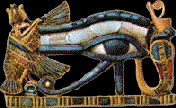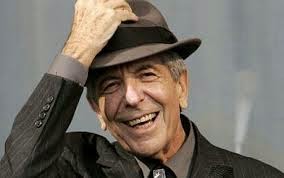
Adjusted repost of June 12, 2006
Nature certainly has it all fixed, I'd say. No matter what we do, our genetic blueprint will dictate what happens to us and when. From the moment we're born, we're vulnerable to the progression of time, and we start to grown up. But why do we grow old? Insects, especially bees, ants, they all die soon after procreating. It's their main purpose. They don't age. In fact, many animals seem to have that purpose, to reproduce for as long as possible, then quickly die. They don't hang around in that limbo called "old age" for the many decades humans do. No, not like the human animal, who can choose whether or not to have young, and can even choose how they age. Humans are the only mammal who grow into older age for no natural reason (you have to be coldly analytical here) and contribute nothing of substance to the commune. I know, it rings of the icy logic of nature. But is it true? Once we have children, and they are sufficiently weaned from us, why do we continue living? What force of nature keeps us alive into our 70's, 80's? It's not always an inviting life, either. Like other mammals we're prone to bone loss, heart disease, cancerous cells, a plethora of illnesses which cost us dearly, emotionally, financially, spiritually. So why do we age, while others species never do?
The elephant, now there's a similar example of growing old for no viable reason, and yet there's a very good reason, which I'll explain. It takes almost 3 years for the baby elephant to gestate, and if it's female, remains with its mother for the rest of her life, having babies of her own. The male is rarely tolerated and must leave the herd when fulled weaned, going off to find his fortune, perhaps starting his own herd. The elephant lives a long time in comparison, over 70 years, well past the time to procreate. So why does it live on? In studying these wondrous creatures it's found that the aged and elder of the herd are always the decision-makers, the keepers of the health of the commune by not allowing rogue elephants to mate with the females. They preserve the viability of the genetic health of the herd. They lead the young to water, when none can be found. They show the young where to migrate for the best grasses. They teach the ways of fending off predators, and in their numbers they form a true family bond, eagerly followed by the young. So the elephant world has a use for its elder members. Why are others different?
Look to the ape family, genetically the most similar to our own species. When a female is past the age of bearing young, she is tolerated for a short time by the pack, but only by her relatives, then left to fend on her own. Ignored and left out of special feedings when meat is available, she soons starves or dies of simian disease. Yes, apes eat meat on occasion, usually monkeys. But the point is, once you can no longer give anything of import to the pack, you're considered a burden, and because you're older you are susceptible to all the illnesses we humans are, including SIV, the simian form of HIV. None of the wisdom you may've collected in your life is of any use, since nature sees with its cold icy eye that having you around is more trouble than not. That is the condition in ape society. Is this starting to sound a bit familiar?
The human animal ages if allowed to live healthy, born without disease, and lives in the proper environs. In aging, we acquire illness and disease making it a burden for us to live, and for others to care for us. The total wisdom collected in our lives is rarely respected, if even tolerated. And yet, the Asian people see their elderly as honored living treasures, and treat them accordingly. What's wrong here in the west, why do we fear aging so? Perhaps because it's the harbinger of death, a state we can only hope is not some oblivion since we have no proof at all that our molecules won't dissipate into the stratosphere when our bodies decay. We cling to our faith in a Special Being, a God, who will welcome us (who will we be when we die though?) yet it's easier to believe than not to. We know in our hearts there's a chance our Judeo-Christian God may not be what we imagine, and the afterlife is something so alien to how we think now that it's just unimaginable, using the limited brain power we have. This tableau frightens many into offering prayer to something they don't really believe in but would rather not chance the prospect of oblivion, so they believe in what they're told is true.
This can have nothing to do with religion, it's about the cold, clear waters of science and nature. Belief in God is something that comes from the spirit or soul, and we choose to believe because it comforts us. No matter how many times I pray to God, meditate on what He is, I cannot explain Him. But I believe I comprehend nature, believe I can explain it, still it puzzles me why nature allows the human to continue on into old age if for no other reason than we can. People live so much longer now, I wonder is that natural? Hasn't anyone noticed how many older humans are on this planet compared to other species? What use has nature for the elder human past the ability to reproduce? Well I certainly know the very personal, emotional use of my grandparents, and anyone with accumulated knowledge I can benefit from, but again, why does nature allow this condition? And in that regard, what about habitat? Most animals require a certain amount of space to live a normal, healthy life. Except humans, who demand the whole planet as their habitat, and not content with that have propelled our bodies far into space, to explore other worlds. I know of no other creature who only truly needs a small amount of space to live but demands all of the planet and then some. We even rob the habitats of other species to use for ourselves, and end up misusing that space by trying to farm it. Why would such a life form be allowed to procreate at will, take up all the space they can buy or steal, and the big question, live for such a long, long time? I feel in my bones that nature will win out in this question, and someday humans may be confronted with the hard fact that, as a species, we may not be as successful as we think.



 HOPING YOU HAVE CLEAR CRISP SKIES FOR TONIGHT'S LUNAR ECLIPSE AT 10:00 PM EST. The process begins at 8:43 PM EST but the eclipse will start at 10:01 PM. During the intial hour of the five phases the moon will go through as she passes into and out of earth's shadow, you'll be seeing an event which startled and amazed your ancestors of millenia past. Imagine earliest homo-sapiens as they stood and gazed at this red-orange sight, how did they interpret what they saw, what information did they process? No doubt the majority ran into their caves, fearful and confused, but that one lone progenitor of modern astronomy risked whatever doom imagineable and continued to gaze in awe and wonder ....
HOPING YOU HAVE CLEAR CRISP SKIES FOR TONIGHT'S LUNAR ECLIPSE AT 10:00 PM EST. The process begins at 8:43 PM EST but the eclipse will start at 10:01 PM. During the intial hour of the five phases the moon will go through as she passes into and out of earth's shadow, you'll be seeing an event which startled and amazed your ancestors of millenia past. Imagine earliest homo-sapiens as they stood and gazed at this red-orange sight, how did they interpret what they saw, what information did they process? No doubt the majority ran into their caves, fearful and confused, but that one lone progenitor of modern astronomy risked whatever doom imagineable and continued to gaze in awe and wonder ....  Prehistoric. Perfectly suited to my habitat.
Prehistoric. Perfectly suited to my habitat. When seen, I appear as a large crawling shell with long tail, slowly inching my way up onto the shores of America's eastern corridor, then slowly returning back into the deep. I do this only to spawn, when the moon is full and I sense the time to procreate.
When seen, I appear as a large crawling shell with long tail, slowly inching my way up onto the shores of America's eastern corridor, then slowly returning back into the deep. I do this only to spawn, when the moon is full and I sense the time to procreate.  Of the thousands of eggs I bury, only 10 will survive. This is nature in it's most prefect balance, as many other life forms depend on me to exist.
Of the thousands of eggs I bury, only 10 will survive. This is nature in it's most prefect balance, as many other life forms depend on me to exist.  Only as recent as ten years ago, I was harvested and killed to bait other animals. All the good I do now was unknown, and in only one year alone, over 2 million of my kind were killed, routinely. Just to bait other life. Today, there is a moritorium on killing me, but it will end in two years.
Only as recent as ten years ago, I was harvested and killed to bait other animals. All the good I do now was unknown, and in only one year alone, over 2 million of my kind were killed, routinely. Just to bait other life. Today, there is a moritorium on killing me, but it will end in two years. Humans who perform biomedical research are trying to race the clock in finding a synthetic substitute for the ingredient found in my blood. It is greatly prized.
Humans who perform biomedical research are trying to race the clock in finding a synthetic substitute for the ingredient found in my blood. It is greatly prized. 

 I'm about to tell you. A rule put in effect just for me, sitting innocently at my PC. Or a rule for you, imagine it.
I'm about to tell you. A rule put in effect just for me, sitting innocently at my PC. Or a rule for you, imagine it. TO YOU!!
TO YOU!! Cathy
Cathy This might interest you. It is an analogy and you may've heard it before. My brother Chris related it to me several times in my life.
This might interest you. It is an analogy and you may've heard it before. My brother Chris related it to me several times in my life.  The calendar has been screaming "WINTER" for months but the planet thinks otherwise. Nonetheless, it's that time when cold weather makes little creatures seek warmth, and in this complex where I live, that means mice. For some, you already know how wonderful my habitat is
The calendar has been screaming "WINTER" for months but the planet thinks otherwise. Nonetheless, it's that time when cold weather makes little creatures seek warmth, and in this complex where I live, that means mice. For some, you already know how wonderful my habitat is 














































